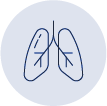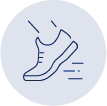National Health Interview Survey (NHIS) Cancer Control Supplement (CCS)

About the National Health Interview Survey (NHIS)
The NHIS is a continuous, nationwide in-person survey of the civilian non-institutionalized population. An estimated 27,000 sample adult and 9,000 sample child interviews are expected to be completed annually. First administered in 1957, the NHIS serves as the main source of U.S. data on a broad range of health topics. It has historically been used for monitoring health patterns and trends, as well as tracking progress towards national goals. Data from NHIS also are widely used for research and policy analyses.
The NHIS is conducted by the National Center for Health Statistics (NCHS) of the Centers for Disease Control and Prevention (CDC), and is administered by the U.S. Census Bureau. Information about the NHIS, including questionnaires, documentation, and datasets, is available on the National Center for Health Statistics NHIS Web site .
.
Cancer Control Supplement (CCS)
NCI sponsors an annual Cancer Control Supplement (CCS) to the NHIS, which is administered to the sample adult in the selected household. The CCS focuses on issues pertaining to knowledge, attitudes, and practices of cancer-related health behaviors, screening, and risk assessment. The CCS covers a variety of topics on a rotating basis including, but not limited to:
 Cancer Screening
Cancer Screening Sun Protection
Sun Protection Family History of Cancer
Family History of Cancer Diet and Nutrition
Diet and Nutrition Tobacco Use and Control
Tobacco Use and Control Cancer Risk Assessment
Cancer Risk Assessment Physical Activity
Physical Activity Genetic Testing
Genetic TestingNHIS CCS data are used for monitoring Healthy People cancer control objectives. They have also been used in NCI's Cancer Trends Progress Report and in many published peer-reviewed manuscripts. NHIS CCS surveys and data are available on the NCHS Web site.
The NHIS CCS is co-sponsored by NCI's Division of Cancer Control and Population Sciences and CDC's Division of Cancer Prevention and Control.
CCS Administration Schedule
The topics to be assessed as part of the annual Cancer Control Supplement align with the rotating and annual topics in the NHIS . The proposed schedule of rotating content is shown below by year and by allotted time for each topic (shown in 30-second increments). The total length of the annual supplement is 5 minutes. This administration schedule is subject to change.
. The proposed schedule of rotating content is shown below by year and by allotted time for each topic (shown in 30-second increments). The total length of the annual supplement is 5 minutes. This administration schedule is subject to change.
| 2019 | 2020 | 2021 | 2022 | 2023 | 2024 | 2025 | 2026 | 2027 | 2028 | ||
|---|---|---|---|---|---|---|---|---|---|---|---|
| Rotating NHIS Core | Preventive services | Health behavior | Preventive services | Health behavior | Preventive services | Health behavior | Preventive services | Health behavior | Preventive services | Health behavior | |
| Care utilization | Rotating conditions | Care utilization | Rotating conditions | Care utilization | Rotating conditions | Care utilization | |||||
| Mental health | Employment | Mental health | Employment | Mental health | Employment | Mental health | |||||
| Cancer control supplement | 00:30 | Colorectal cancer screening | Skin cancer | Colorectal cancer screening | Diet and nutrition | Colorectal cancer screening | Skin cancer | Colorectal cancer screening | Diet and nutrition | Colorectal cancer screening | Skin cancer |
| 00:30 | |||||||||||
| 00:30 | |||||||||||
| 00:30 | |||||||||||
| 00:30 | Breast cancer screening /Prostate |
Lung cancer screening | Breast cancer screening /Prostate |
Breast cancer screening /Prostate |
Lung cancer screening | Breast cancer screening /Prostate |
Cervical cancer screening /Prostate |
Lung cancer screening | |||
| 00:30 | |||||||||||
| 00:30 | Physical activity: environ-ment | Tobacco | Risk | Physical activity: environ-ment | Tobacco | Risk | Physical activity: environ-ment | ||||
| 00:30 | Cervical cancer screening /Prostate |
Cervical cancer screening /Prostate |
Cervical cancer screening /Prostate |
||||||||
| 00:30 | |||||||||||
| 00:30 | Emerging topics | Emerging topics | Emerging topics | Emerging topics | Emerging topics | Emerging topics | Emerging topics | Emerging topics | Emerging topics | ||
CCS History
Prior to 2019, the CCS was administered every 5 years. The first CCS was administered in 1987 with subsequent surveys administered in 1992, 2000, 2005, 2010, and 2015. Additionally, a subset of cancer screening questions has been administered intermittently since 2000.
